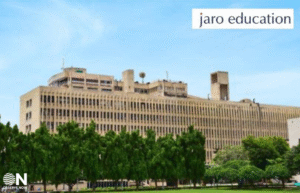IIT Jodhpur Research Reveals Critical Insights into Air Pollution Crisis in Northern India

In a pivotal development in the fight against air pollution, researchers from the Indian Institute of Technology (IIT) Jodhpur have unveiled groundbreaking findings published in the prestigious Nature Communications journal. The study delves into the sources and composition of particulate matter (PM) in Northern India, shedding crucial light on its severe health implications for millions.
Contrary to common assumptions, reducing overall PM mass alone may not suffice in mitigating health impacts. Dr. Deepika Bhattu, Associate Professor and lead author of the study, underscores the necessity of tackling local inefficient combustion processes, including biomass and fossil fuel burning, and traffic exhaust. These findings hold significant implications for policymakers, especially under India’s National Clean Air Programme (NCAP).
The research addresses three pivotal questions:
1. Identification of fine PM (PM2.5) sources and their absolute contribution, distinguishing between local and regional origins.
2. Clear differentiation between directly emitted PM and those formed in the atmosphere, a first on a large scale.
3. Determination of PM’s harmfulness by correlating its oxidative potential with local and regional sources.
Utilizing advanced aerosol mass spectrometry techniques, the study conducted across five Indo-Gangetic Plain sites revealed varying chemical compositions of PM. While Delhi witnesses dominance of ammonium chloride and organic aerosols from traffic exhaust and residential heating, regions outside the capital exhibit dominance of ammonium sulphate, ammonium nitrate, and secondary organic aerosols from biomass burning.
Regardless of location, organic aerosols from incomplete combustion emerged as key contributors to PM’s oxidative potential, surpassing levels observed in other regions across Asia-Pacific and Europe by up to fivefold.
Dr. Deepika Bhattu emphasizes the urgent need for collaborative efforts to address India’s air pollution crisis, especially in densely populated urban areas like Delhi. She advocates for sustainable initiatives promoting cleaner energy sources, enhanced combustion efficiency, and emission reduction from transportation, particularly outdated and inefficient vehicles.
These findings offer critical insights for evidence-based policies aimed at safeguarding public health and the environment. Prioritizing mitigation strategies targeting local combustion processes emerges as imperative in Northern India’s battle against air pollution.
















